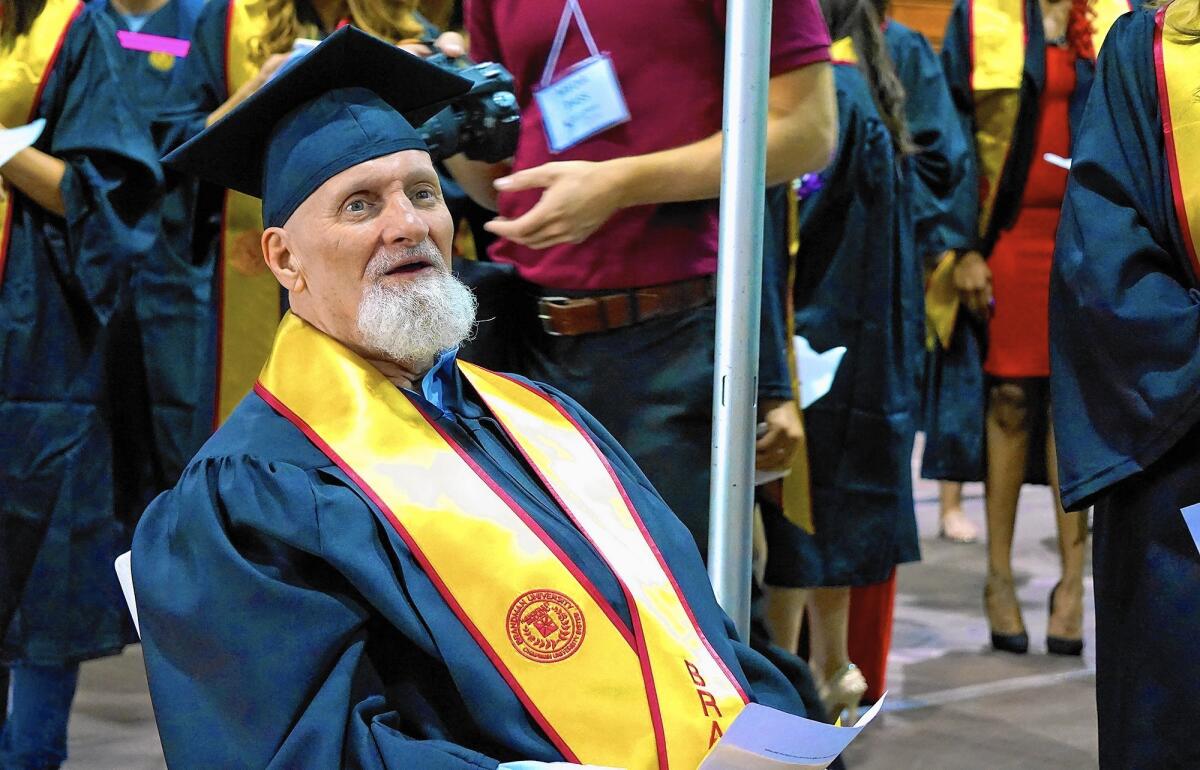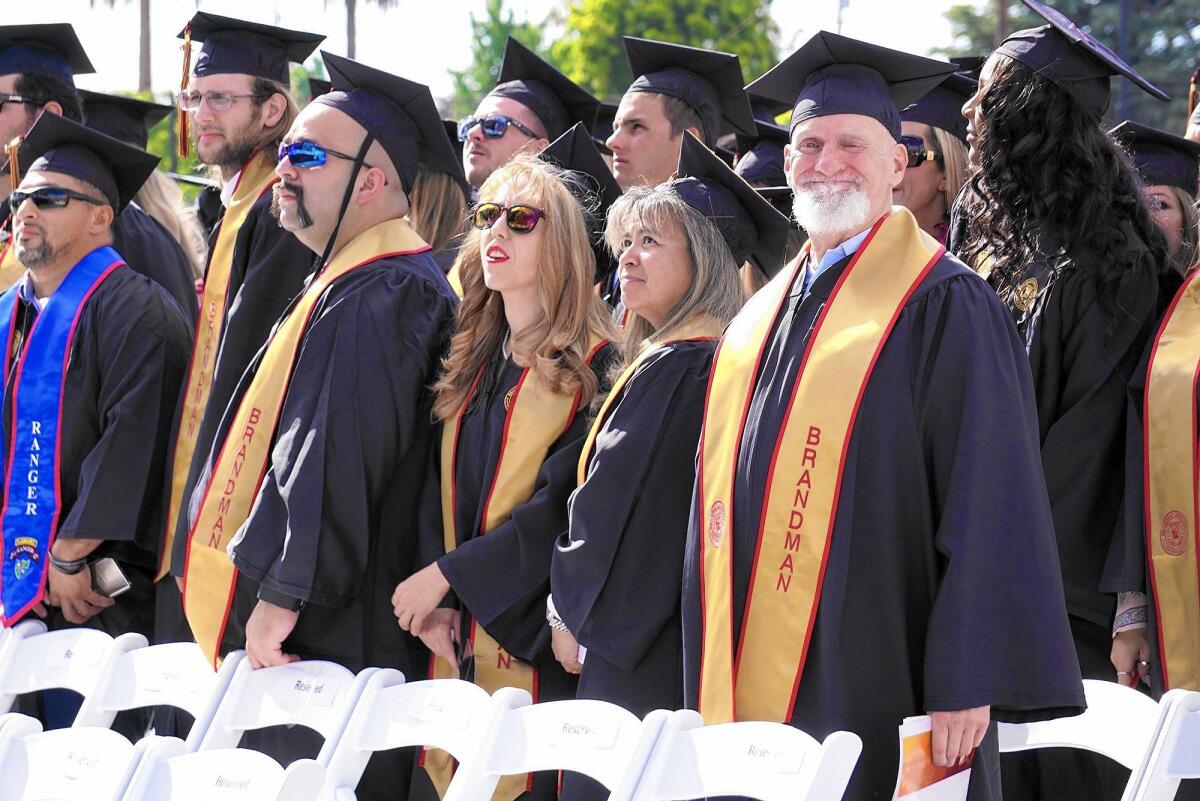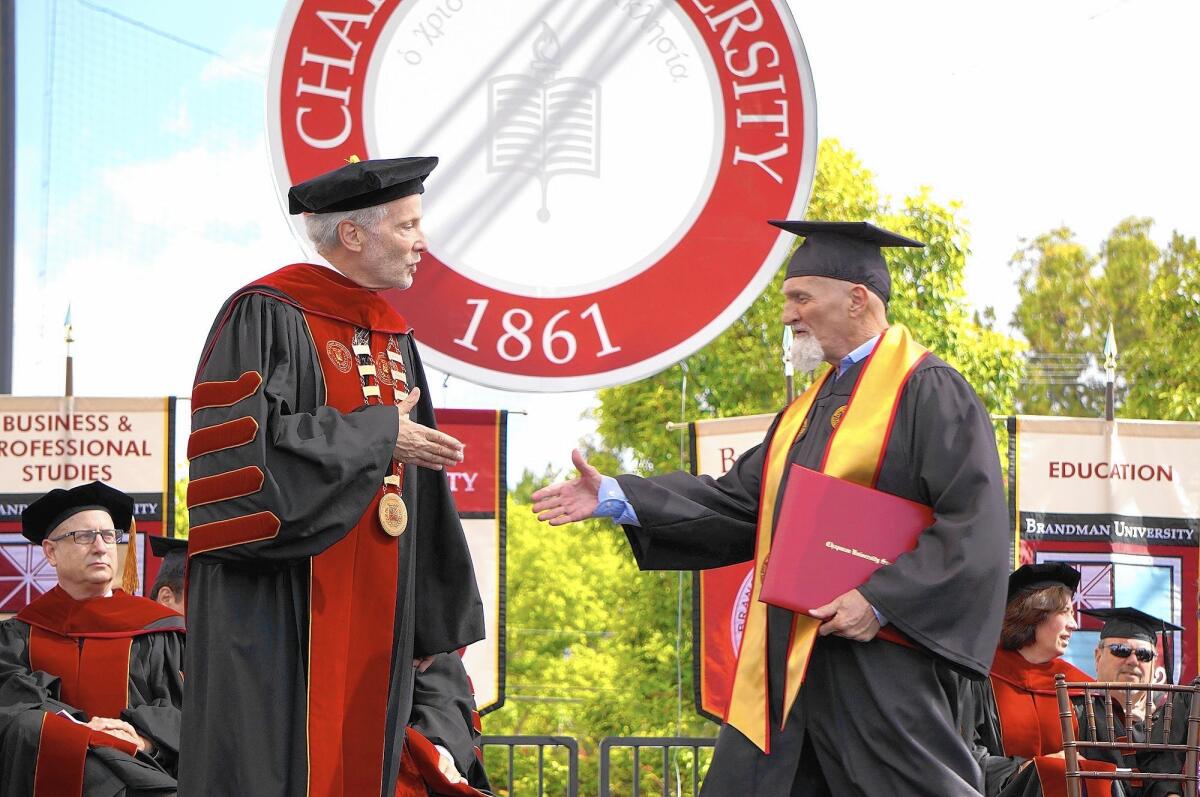Brandman grad, 64, completes journey from behind bars to sociology degree

In almost 21 years, Joe Blackburn served four sentences in five prisons between the Mexican border and Sacramento.
At 54, drug and gang activities had taken away much of his freedom.
But on May 22, Blackburn, now 64, put on a black cap and gown for Brandman Universityâs 2016 commencement ceremony. He walked not in a prison yard but to the rhythm of âPomp and Circumstanceâ to get his hands on a sociology degree from the Irvine-based affiliate of Chapman University.
That degree brings him one step closer to his mission of one day opening a facility to help released convicts like him âget back to a regular life.â
Itâs been 11 years since Blackburn was last in jail, where he learned he had and was treated for bipolar disorder.
âIt was like being born again,â he said. âI was determined to not fall back into the drugs, the gang life â¦â

A life of mischief
Blackburn grew up in El Monte, the only child of a mechanic and a housewife.
âI was in as much trouble as I could get,â he said. âI was just a complete and total delinquent.â
Blackburn is still unsure of what drew him to destructive acts, such as setting off firecrackers and breaking windows, but theorizes that he was seeking stress-relief.
âMy emotions were always out of whack,â he said. âIn as many as four or five times a day, I would switch from being a maniac to being depressed. I was in and out of juvenile hall and a part of street gangs. Everything a person could do wrong, I did.â
Blackburn first landed in prison in 1974. His first term lasted four years. He wound up incarcerated again 10 years later. Then time between terms grew shorter and shorter.
One day, during a stroll in the prison yard, a sign called out to him. It was a poster, which referenced a 1995 class action lawsuit that helped ensure California inmates received mental-health care.
âThe idea of talking to a shrink was inconceivable to me,â Blackburn said.
He started seeing a psychiatrist in Centinela and then other counselors at Lancaster then Soledad. It helped.
In 2001, a psychiatrist in Soledad diagnosed his manic-depression and adjusted his medications accordingly.
âMy emotions were no longer dragging me down,â Blackburn said. âI still have those feelings, but itâs not out of control. The motorcycle clubs, the street gangs, the selling drugs, I had no desire to do that stuff anymore.â
While serving his last term, Blackburn was baptized in the Soledad chapel, feeling born again as the preacher dipped his head into a pool of water.
After being released, he lived as a parolee at a Christian ministry in Canyon Country. He soon enrolled in College of the Canyons in Santa Clarita, where he studied from 2011 to 2013 before transferring to Brandmanâs on-site satellite campus

First day of classes
On the first day of adjunct professor Dan Randolphâs undergraduate criminal justice class at Brandman, he had all of his students share about themselves.
When it came time for Blackburn, the professor did not know what to expect.
âI usually get answers like âI transferred from College of the Canyonsâ or âI worked at Applebeeâs,â not âIâve been to prison several times but now Iâm happy to be here,â â Randolph said. âBut it was easy for me to see he was fully engaged in discussion, lecture and offering perspective. It was coherent, intelligent and objective ⦠Never confrontational, never threatening.â
Randolph began teaching at Brandman in 2004.
During Blackburnâs time at Brandman, he had taken three courses with Randolph, earning all Aâs.
Suzy Mix, who helps Brandman students with financial aid, registration and applications, recalled that Blackburn had âsuch a thirst for knowledge. Instructors would even come to me before class to say heâs involved, engaged, and heâs a great writer.â
Blackburn plans to get his masterâs in psychology and then a doctorate in sociology to build the foundation he believes he needs to reach his mission.
âWhat we need is a facility for guys getting out of prison, somewhere they can go to have sleep, food and someone there to counsel them instead of turning back to crime,â he said. âTo establish it, Iâll have to have the background and credentials. I need to carry this through.â
